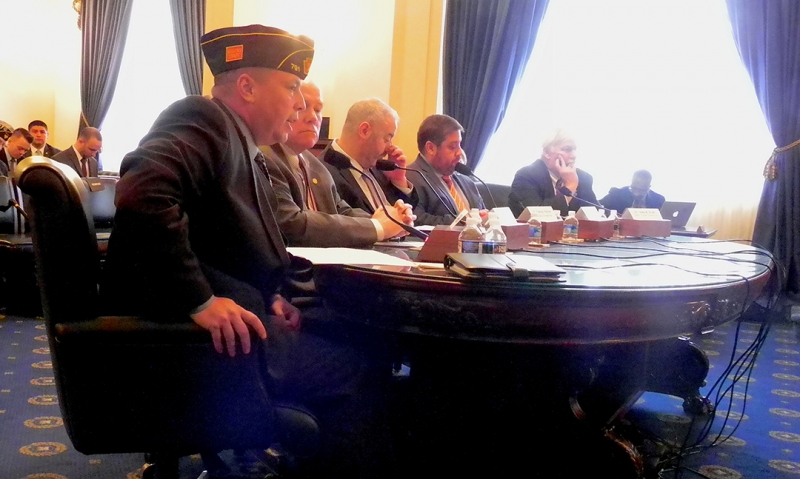
Legion seeks cause and proper treatment for Gulf War Illness, and how to properly adjudicate claims that are associated with it.
Zachary Hearn, deputy director of claims for The American Legion’s National Veterans Affairs and Rehabilitation Division, testified on the VA's processing of Gulf War Illness claims during a joint hearing July 13 on Capitol Hill.
“Gulf War Illness claims are inherently complicated,” Hearn said. “Veterans must tread murky waters to gain service connection for many Gulf War-related, undiagnosed illnesses. An undiagnosed illness is just as it sounds – a cluster of symptoms that are unexplained and undefined. Veterans seeking treatment for these symptoms are often treated for years, and often, have multiple diagnoses before VA will acknowledge that the symptoms are related to an undiagnosed illness. It is terribly frustrating for veterans and, as seen by a recent (U.S. Government Accountability Office) GAO report, overwhelmingly denied by VA when service connection is sought.”
Although VA has previously acknowledged its frustration with Gulf War Illness, Hearn said the GAO report indicated that only about 10 percent of VA’s medical examiners successfully completed an optional course related to it.
“Let us also not forget that many examinations are now being conducted by private-sector contractors,” he said. “If VA isn’t providing mandatory training regarding Gulf War Illness to its employees, what requirements are being made of the contracted examiners?”
The American Legion has over 3,000 accredited service officers located throughout the nation. Hearn said these dedicated individuals are the lifeblood for staff in Washington and provide necessary feedback regarding issues our veterans face regularly.
The GAO report, combined with the Legion’s findings, paint a bleak picture of the development and adjudication of Gulf War-related claims. Medical providers have optional training, of which only 10 percent participate and Veterans Benefits Administration personnel complain of a lack of adequate training on the subject, according to Hearn.
“Three generations of veterans have potentially been impacted by Gulf War Illness, and these concerns have been swirling for over a quarter of a century,” Hearn said. “Right now in Iraq, a 20-year-old deployed troop wasn’t even born when these symptoms arose and may suffer one day. We have yet to discover the cause and proper treatment for it, and how to properly adjudicate claims that are associated with it.”
Hearn said it is evident there are needs for improvement. The American Legion is willing to work toward achieving these goals.
“In the last year, VSOs (veterans service organizations) working with VA designed an appeals modernization plan that we collectively achieved,” he said. “This is a problem that will not be resolved by finger pointing; it is a problem that will be resolved by agreeing on identified problems and arriving at sensible solutions.”
- Veterans Benefits

